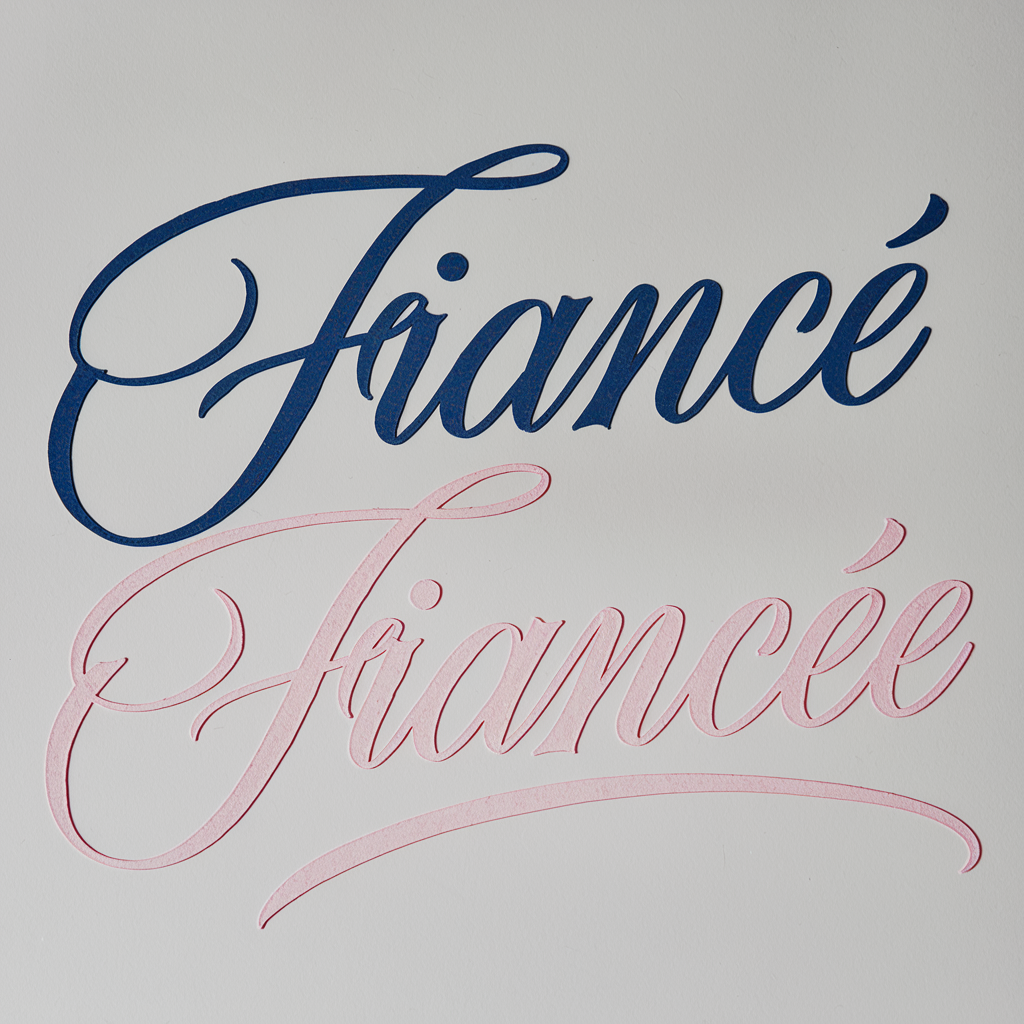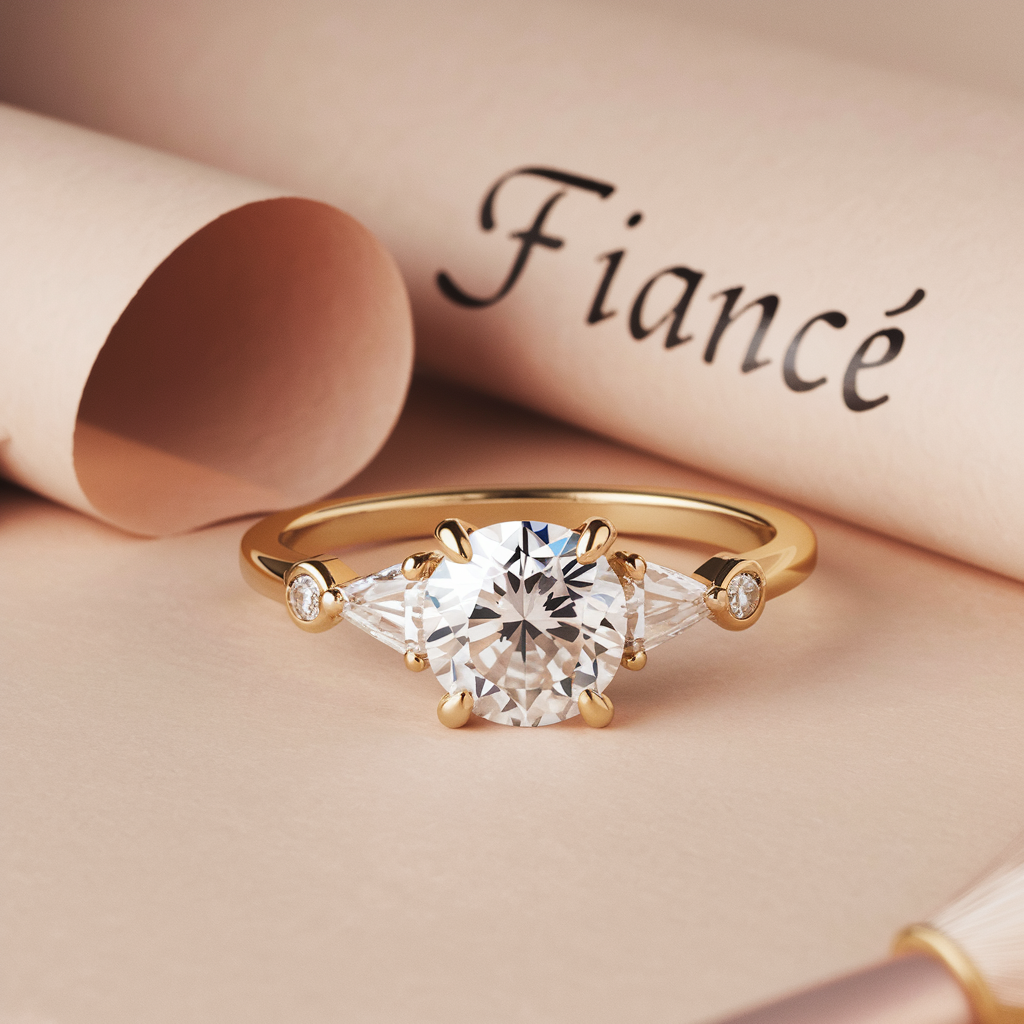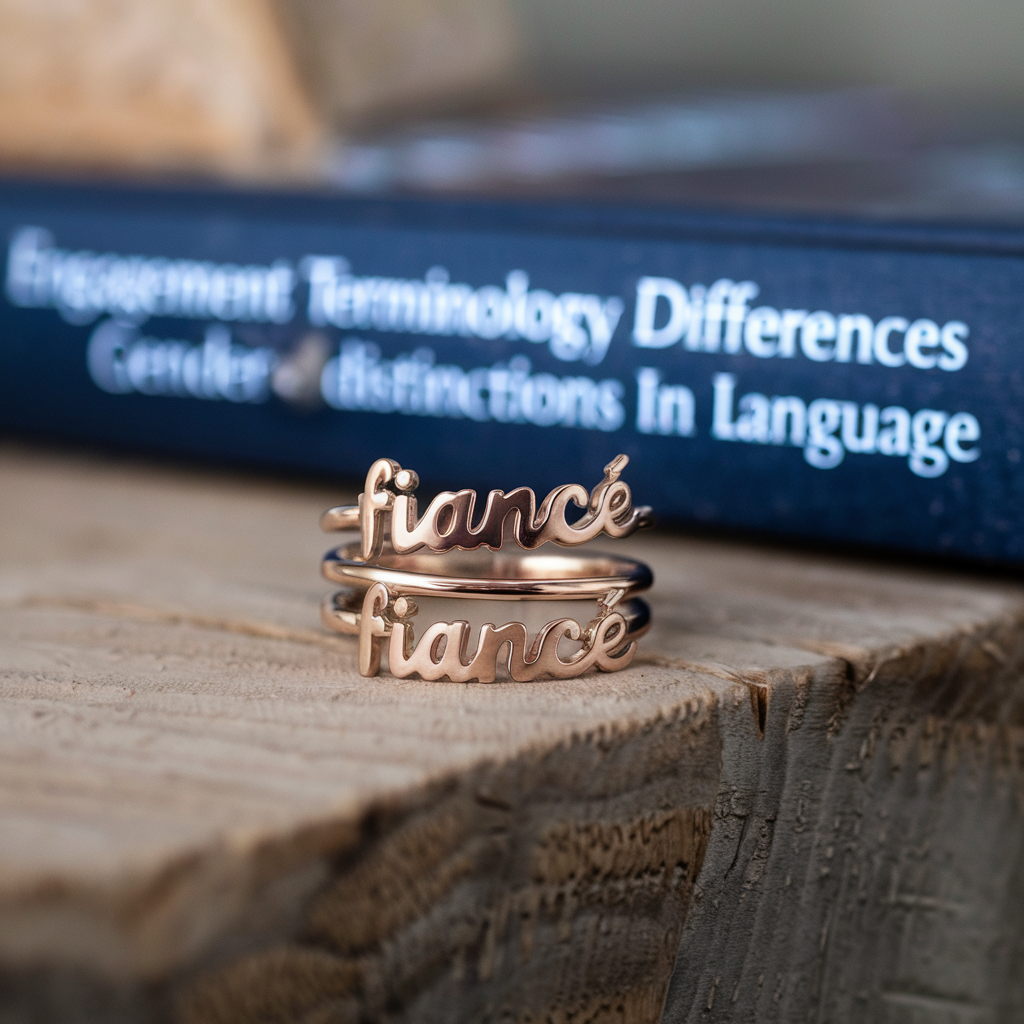Key points
Here are 3 key points about fiancé vs fiancée:
- Fiancé refers to a man who is engaged to be married.
- Fiancée refers to a woman who is engaged to be married.
- The difference is the extra “e” at the end for fiancée.
Contents
Fiancé and Fiancée

Although fiancé and fiancée look similar they have different meanings. The words fiancé and fiancée both refer to the person you plan to marry. Fiancé is for the man and fiancée is for the woman.
Definition and Origin of Fiancé

The French word “fiancé” refers to a man who has been engaged to get married. Its literal meaning is “to promise.”
This word came into English in the 1800s and still uses the same French spelling and pronunciation (fee-ahn-SAY).
Etymological Roots in the French Language
The term fiancé comes from the Latin word “fidanzatus” meaning “pledged or betrothed.” It originated in the early 1800s.
It also derives from the French word “fiancer.” The word “fidere” is a Latin root word that means to trust, to have faith, or confide. So “fiancé” translates to “the betrothed man.”
Definition and Origin of Fiancée
Fiancée is the feminine form of the French word fiancé. It means a woman who has been promised a marriage or an engagement. It comes from the same Latin root words as “fiancé” but has its feminine ending (-ée).
Etymological Roots in the French Language
In French adding “-ée” to a word denotes feminine form. A fiancée is a female who is engaged to be married.
The feminine word that ends in -ee comes from the Latin “-ata” which means “provided with” or “characterized by.” So fiancée means a “woman characterized by being betrothed.”
Gender Distinctions in Language

The difference between fiancé and fiancée shows how grammatical gender affects many languages. The masculine and feminine labels color perceptions and show how cultural beliefs about gender roles.
Cultural norms evolve. So does how language adapts. More and more people are advocating for a gender-neutral alternative for gendered terms.
Comparison with Other Gendered Nouns
Words like “fiancé” and “fiancée” create unnecessary gender contrast in our modern world.
This gendering is said to encourage outmoded stereotypes which has led to efforts in creating a gender-neutral version like flight attendants.
Historical Context and Usage
The words fiancé and fiancée originate from the French verb “fiancer” meaning “promise in marriage.” Gendered nouns are the rule in French and many other languages.
People started having new ideas about gender. Nowadays many people are trying to adopt more inclusive and non-gendered language which does not assume male and female to be the only possibilities.
People still use fiancé/fiancée but the “betrothed or my partner” are options often used. This signifies that language continues to adapt in response to cultural change.
Relevance and Similarity

Their meanings are different but the pronunciation is similar. We can easily identify and understand the difference between fiancé and fiancée by looking at their meanings first.
Even though these two words sound the same their spelling helps us know the gender of the person. When we use the right form we show how we can grasp the semantic distinction.
Common Misunderstandings and Errors
The words ‘fiancé’ and ‘fiancée’ appear very similar and are pronounced similarly. It’s an easy mistake but the spellings provide clues.
Fiancé that ends in é signals a male partner. Fiancée that ends in ee indicates a female partner. Getting tripped up is normal but it’s good to learn the difference. Knowing the proper usage displays more care.
Cultural Implications and Perceptions
Using the correct gendered forms demonstrates respect. Using “my fiancée” instead of just “my fiancé” means you are recognizing your partner’s womanhood. The same manner when using « fiancée » correctly to affirm the masculinity of your male partner.
Though subtle – these distinctions matter. The words have meaning so use them correctly to show your appreciation to your partner.
Expert Insights

Many people confuse the words fiancé and fiancée. But it’s not that complicated. Fiancé is for a man while fiancée is for a woman The extra “e” at the end is what makes fiancée feminine.
Mignon Fogarty’s Analysis
Expert Mignon Fogarty said that the history of the words fiancé and fiancée comes from French. Most nouns have a masculine and feminine form.
These words were added to the English language so too was gender. The extra “e” is like a handy little reminder to show us whether the person who is engaged is a man or a woman.
Linguistic Studies on Gendered Nouns
Gender distinctions in language help senders encode and receivers decode messages quickly. Nouns with gendered endings give listeners more information about it.
While English doesn’t need gendered nouns the usefulness of these words is probably why they have stuck around.
Frequently Asked Questions (FAQ)
What's the difference between fiancé and fiancée?
Fiancé and fiancée come from French. Fiancé refers to a man who is engaged to be married. Fiancée refers to a woman who is engaged. The extra e in fiancée is because in French words change endings for masculine and feminine.
Can you use fiancé for a woman?
No. Fiancé is only for a man who is engaged. An engaged woman has to use fiancée with the extra “e.”
Why do we have two spellings?
Fiancé comes from the French word for a man who is betrothed. Fiancée is the feminine form with the extra “e.” English adopted both versions.
Is fiancée always correct for a woman?
Yes. Fiancée is the correct term for a woman who is engaged to be married. Fiancé is only for a male.
Can I use fiancé as gender neutral?
No. Fiancé and fiancée have gender-specific meanings. You need to use fiancée for a woman to be grammatically correct.
What if I don't know the gender?
If you don’t know the gender of the engaged person then use fiancé/fiancée to be safe.
Is the accent important?
The accent over the first “e” in fiancée is often dropped in English. But it’s still good to keep it for the feminine spelling.
Can fiancé be used informally?
Some English speakers use fiancé for any engaged person regardless of gender. But traditionally fiancée is still preferred for women.
Do the words sound different?
Fiancé is pronounced “fee-ON-say” and the fiancée is “fee-on-SAY.” The main difference is the emphasis on the last syllable.
What's the origin of fiancé/fiancée?
Fiancé and fiancée come from the French verb “affiancer” meaning “to promise marriage.” Fiancé came to English from Old French around the 14th century.

I’m Kary Walters, a wedding planner and writer with a passion for helping couples stay together and achieve their relationship goals. With over a decade of experience, I specialize in self-improvement and have worked with individuals & couples facing challenges.